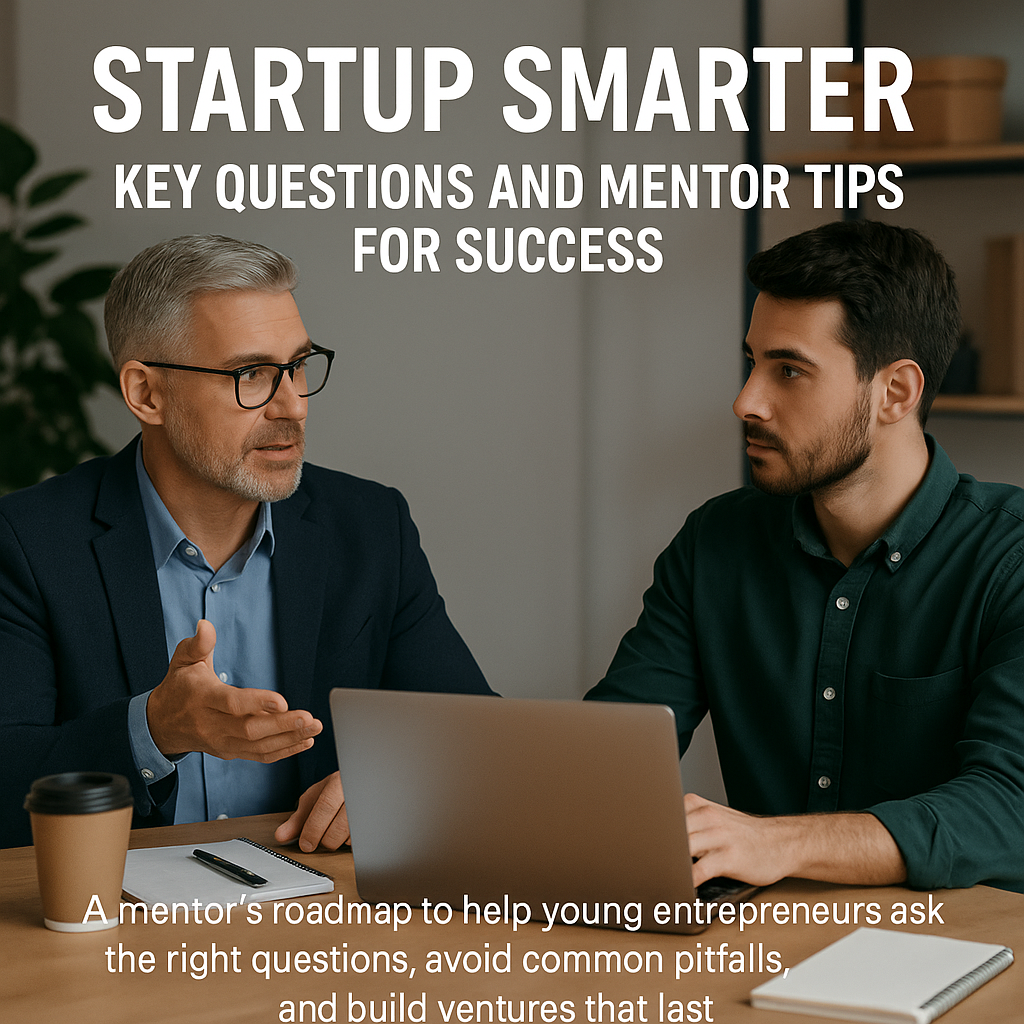A mentor’s roadmap to help young entrepreneurs ask the right questions, avoid common pitfalls, and build ventures that last.
Mentoring young entrepreneurs is not just about offering advice—it’s about asking the right questions that spark deeper thinking and more strategic planning. Whether you’re a student launching a new venture or a mentor guiding early-stage startups, having a structured conversation can shape the direction of a startup and build a solid foundation for success.
Every great startup begins with a clear understanding of the problem it aims to solve. It’s essential to ask: what problem are you addressing, and who exactly are you solving it for? Understanding the urgency and relevance of that problem today is crucial. Founders also need to think about how their solution stands out in a crowded market—what makes it better, faster, cheaper, or smarter than existing alternatives?
Once the idea is clear, it’s time to shift focus to the market and customers. Founders must define their ideal customer and verify if there’s genuine demand for their solution. Have they gathered real feedback through surveys or interviews? What channels will they use to reach their audience—will it be social media, partnerships, direct sales, or something else? It’s important to challenge any untested assumptions about the customer and encourage validation through real-world data.

A great idea and a clear market won’t go far without a viable business model. Founders must think through how they’ll generate revenue, what their pricing strategy will be, and how they’ll manage costs to remain financially sustainable. Many early-stage teams overlook this, but understanding your path to profitability is essential from day one.
Equally important is the team behind the idea. A successful startup requires more than just ambition; it requires the right people in the right roles. It’s important to discuss who’s doing what, identify any skill gaps, and have a plan to address those. Decision-making and conflict resolution are also key areas to explore—how the team navigates challenges often determines their long-term success.
Growth and scalability are often the next frontier. Founders should have a clear vision for where their startup is headed in the next 6 to 12 months. What specific goals do they want to hit? What metrics will they track to measure success—user growth, revenue, customer engagement? Having clarity here shows maturity and preparedness.
Another crucial skill for any founder is communication. Every startup founder should be able to explain their idea clearly and concisely, especially in high-pressure moments like investor pitches. Ask them if they can describe their idea in 30 seconds. Do they have a pitch deck or prototype ready? Do they know what kind of support or investment they need? Storytelling and clarity are critical skills for earning trust and buy-in.
As a mentor, it’s helpful to share a few core principles. Encourage founders to focus on solving a real problem rather than just building a product. Remind them that it’s okay to start small, as long as they test quickly and learn from feedback. Execution always beats ideas—persistence and consistency are what ultimately drive results. Lastly, being open to mentorship and constructive criticism is a sign of strength, not weakness.
Mentorship isn’t about giving ready-made solutions; it’s about guiding founders to think, question, test, and grow. When students learn to challenge assumptions and focus on meaningful impact, they not only improve their startups—they become better entrepreneurs and future leaders.